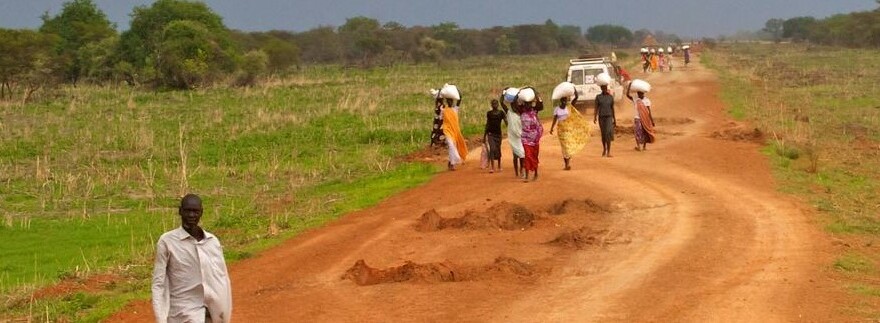The UN’s Humanitarian Coordinator, Sara Beysolow Nyanti, has called for a joint action to address the humanitarian crisis in South Sudan and an immediate end to attacks against civilians and humanitarian workers on World Humanitarian Day.
In 2008, the UN General Assembly adopted a resolution designating 19 August as World Humanitarian Day. Each year on 19 August, World Humanitarian Day advocates for the survival, well-being, and dignity of people affected by crises and for the safety and security of aid workers.
Nyanti said it takes a village to raise a child, and in the same way, it takes an array of partners to support crisis-affected people.
“We need urgent collective efforts to help the vulnerable population in South Sudan,” she said. “I commend the humanitarian workers and all those risking their own lives to alleviate the suffering and save the lives of others.”
The Humanitarian Coordinator expressed gratitude, appreciation, and respect to the aid workers, communities, local authorities, and first responders that provide life-saving assistance to thousands of people experiencing dire humanitarian needs.
South Sudan continues to be the most violent context for aid workers, followed by Afghanistan and Syria. Five humanitarian workers have been killed in the line of duty in South Sudan since the beginning of 2022.
According to the UN, across the country, humanitarian workers and overwhelmingly national humanitarian workers are affected by the impact of armed violence, bureaucratic impediments, and targeted violence. 232 incidents related to humanitarian access constraints were reported between 1 January and 30 July this year.
The areas where humanitarian access constraints were the highest experienced were Jonglei and Central Equatoria, which account for 40% of all reported incidents since the beginning of the year.
“People across the country, especially women and girls, face many protection risks including conflict-related and gender-based sexual violence, armed violence, crimes, abductions, and destruction of properties,” A press release from OCHA said. “These critical protection risks are compounded by the rule of law and access to justice deficits.”
Nyanti said impunity is a perpetuating factor and a driver of conflict and insecurity.
“There is an urgent need to bring perpetrators to justice. We need strengthened joint action, multidimensional dialogue, and engagement to address this,” she said. “All armed factions must immediately cease targeting civilians, humanitarian personnel, and their assets. Impunity must end.”
The Humanitarian highlighted and honoured the humanitarians, especially women, who she said work tirelessly on the frontlines in the most difficult environments, trying to reach thousands of crisis-affected people.
“On this day, we come together to pay tribute to all responders supporting people in need of humanitarian assistance, and we should do so every other day,” she added.




